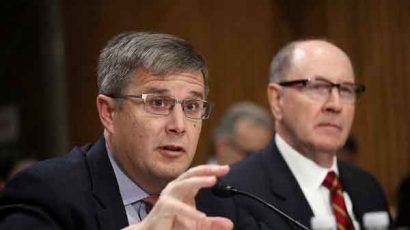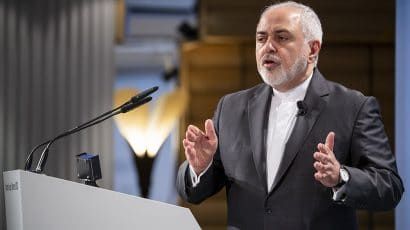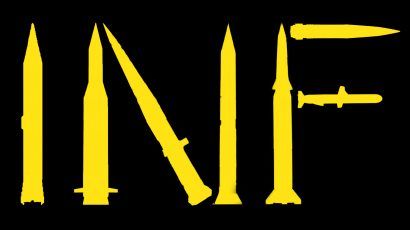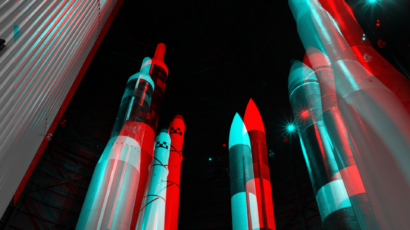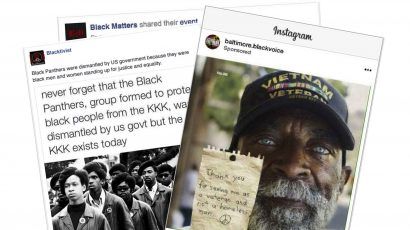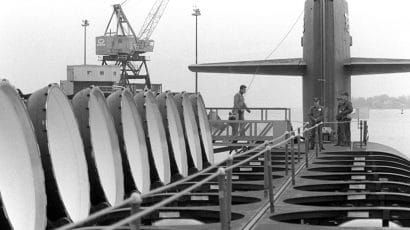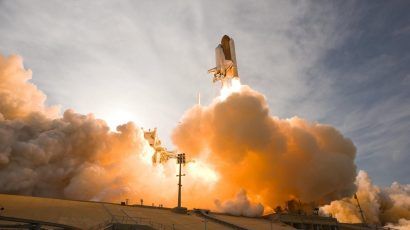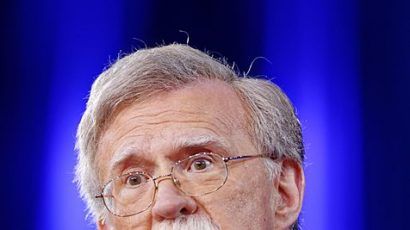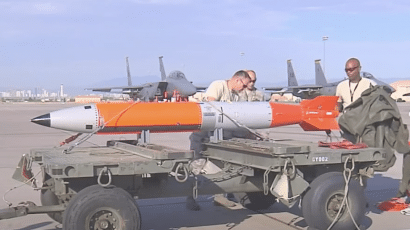Search results for trump
Yucca Mountain. Again.
Consent-based siting for nuclear waste repositories seems to be headed for deep burial.
Nine hurdles to reviving the Iran nuclear deal
Although reviving the Iran nuclear agreement is certainly still possible, it won’t be easy. The two sides will need to overcome nine hurdles to make it happen.
Okay, he’s finally in the Oval Office. But what should Joe Biden do first on climate?
A noted author and environmentalist—who first warned of the effects of climate change more than 30 years ago in The End of Nature—offers some ideas to the next president.
Here’s what to expect from Biden on top nuclear weapons issues
From New START, to the Iran nuclear deal, to diplomacy with North Korea, President-elect Biden has his work cut out for him.
Farshad Farahat, Iranian American actor, has advice on reducing nuclear risks
“I think it’s about having options and always looking for new ways to imagine solutions,” Farahat said. “We need a sense that we have alternatives to nuclear weapons.”
The fight over social media’s potent political ads just got more interesting
Political ads on social media are getting fresh scrutiny from lawmakers concerned that the platforms can target misleading information directly to voters with unprecedented efficiency. Twitter announced it would stop accepting paid political advertising, Facebook has taken another route.
A short and practical take on the INF: Small (and focused) is beautiful
Let us focus on a modification of the INF between the United States and Russia that outlaws nuclear-armed short and intermediate-range land-based missiles in Europe, from Portugal and Ireland to the Ural mountains. Missile batteries can be located by national technical means, and any of those in Europe can be verified to be non-nuclear during on-site inspections.
Five noteworthy climate stories from 2017
A look back at our climate change coverage from 2017
The nuclear year in review: A renewed interest in nuclear weapons—for and against
Bulletin's associate editor for nuclear affairs, François Diaz-Maurin, provides his review of the nuclear year; plus six nuclear stories that marked 2023—and that you should read.
Alan Miller: How the News Literacy Project teaches schoolchildren (and adults) to dismiss and debunk internet disinformation
In this interview, Alan Miller explains how the News Literacy Project came to be and what he thinks needs to happen if the worst impacts of the disinformation tsunami that has swamped the internet in recent years are to be mitigated.
The low-yield nuclear warhead: A dangerous weapon based on bad strategic thinking
The debate over the low-yield warhead matters not just because it could make nuclear weapons more usable, but also because it exemplifies the dangers of building a weapon without a strategy.
No, Mr. Stephens, the United States doesn’t need more nuclear weapons
In an op-ed entitled “The U.S. Needs More Nukes,” New York Times columnist Bret Stephens laid out his case against arms control: “the bad guys cheat, the good guys don’t,” and all the while, the US nuclear arsenal is becoming “increasingly decrepit.”
It’s a simple narrative; it’s also false. In fact, Stephens’ article is largely littered with bad analogies, flawed assumptions, and straight-up incorrect facts about the nature of nuclear weapons and arms control.
Low prices keep Huawei in the 5G game despite US concerns
The United States is pressuring allies to keep Chinese telecommunications equipment maker Huawei from building out their 5G data networks, but thanks to Chinese government grants and extremely generous state financing, Huawei is able to drastically undercut the competition, making it hard to resist, even when companies or countries harbor some security concerns.
Space forces real and imagined
The US president’s announcement revives debate about weapons in space.
The dangerousness of John Bolton
A brief look at some of the coverage
A year of Bulletin impact, across the Web
Articles and videos from around the World Wide Web that featured Bulletin expertise in 2017.
Scared of North Korea? South Korea scoffs at your fear
Over the last week, the United States has experienced greater nuclear anxiety than at any time since the Cold War ended. But South Koreans are playing it cool.
Nukes, political violence, and environmental exploitation: The enduring relevance of Dune
Denis Villeneuve's latest installment of the classic sci-fi novel focuses on the corruptibility of leaders, the dangers of political violence, and how the thirst for natural resources is used to justify extreme acts of war and environmental degradation. It feels more relevant than ever.
America should welcome a discussion about NATO’s nuclear strategy
Given the military realities, there is real reason for NATO members in general and the United States in particular to be open to a NATO discussion about the future of nuclear sharing and the possibility of withdrawing US nuclear assets from Europe.
